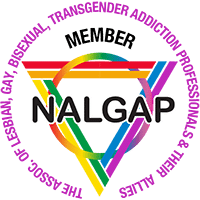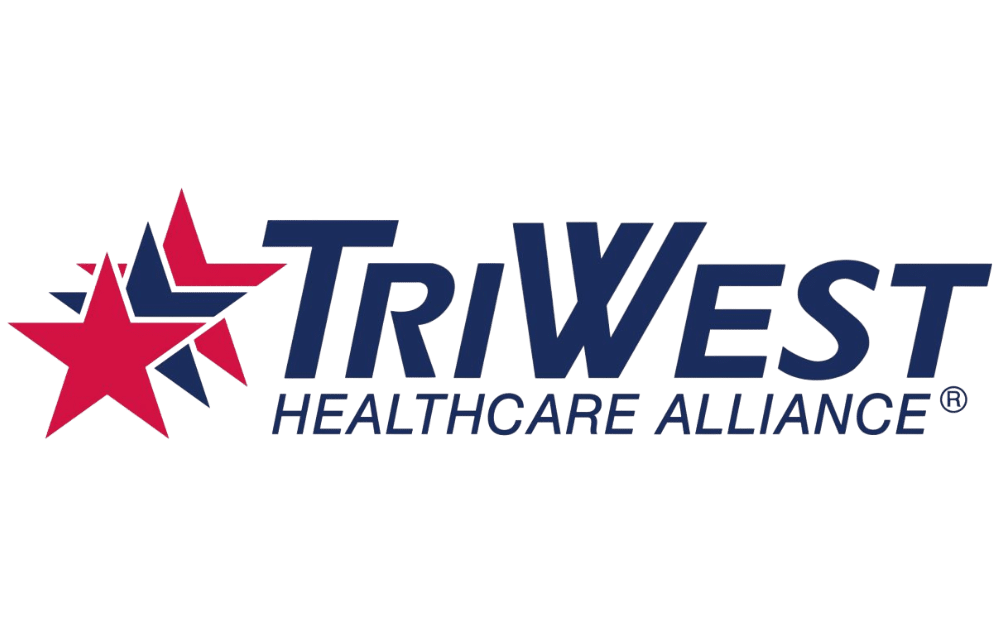Cocaine rehab
Personal Journey in Recovery
At Mile High Recovery Center, we understand that embarking on the path to sobriety is a personal and transformative experience. From the moment you enter our facility, our compassionate and experienced team is here to support you through every step of the cocaine rehab process. We’ve seen countless individuals from all walks of life confront their addiction and emerge stronger, and we’re committed to helping you do the same.
Throughout our years of service, we’ve witnessed the power of community and individualized care in achieving successful recovery outcomes. Our approach blends clinical expertise with real-world empathy, ensuring that you feel understood and supported as you navigate the challenges of rehabilitation.
The Role of Detoxification
Detoxification is often the first phase of cocaine rehab. It’s crucial to approach this step with medical oversight to ensure safety and comfort. At Mile High, our medical team closely monitors each individual, employing evidence-based interventions to manage withdrawal symptoms effectively.
We believe that the detox process sets the foundation for long-term recovery. By providing a medically supervised and empathetic environment, we help clients stabilize their physical health, preparing them for the therapeutic journey ahead.
Our team is trained in handling complex detoxification processes, particularly for those with dual diagnoses. By integrating psychiatric care, we address both substance use and underlying mental health conditions concurrently.
Therapeutic Approaches to Recovery
Therapy is the cornerstone of effective cocaine rehab. At Mile High, we employ a variety of therapeutic modalities tailored to individual needs. Cognitive Behavioral Therapy (CBT) and Dialectical Behavior Therapy (DBT) are integral components of our treatment plans, helping clients develop healthier thought patterns and coping mechanisms.
Experiential therapies such as equine-assisted therapy and adventure therapy offer unique avenues for personal growth and self-discovery. These activities engage clients on multiple levels, fostering resilience and emotional strength.
Incorporating these diverse therapies, we create a holistic treatment plan that addresses the mind, body, and spirit. Our mission is to empower clients to reclaim their lives and achieve sustainable recovery.
Importance of Support Networks
Support networks play a vital role in the recovery journey. At Mile High, we foster an environment where clients can build meaningful connections with peers and facilitators. Group therapy sessions are designed to encourage open dialogue, sharing of experiences, and mutual support.
Our alumni community is a testament to the enduring power of support. Graduates of our program remain actively involved, offering guidance to newcomers and reinforcing their own commitment to sobriety. This ongoing connection helps maintain accountability and motivation, long after formal treatment concludes.
Innovative Housing Solutions
Housing can be a critical factor in maintaining sobriety during and after cocaine rehab. Mile High Recovery Center offers a continuum of supportive housing options, from sober living homes to independent living arrangements, providing stability and structure.
We understand that a positive living environment can significantly impact recovery outcomes. Our integrated housing-to-treatment pipeline ensures a seamless transition from treatment to reintegration, minimizing disruptions and enhancing recovery continuity.
Family Involvement in Recovery
The journey through cocaine rehab isn’t just for individuals; it involves families too. At Mile High, we offer family therapy sessions to help loved ones understand addiction and learn effective ways to support recovery.
This collaborative approach fosters healing and strengthens relationships. By involving families, we aim to build a comprehensive support system that enhances the recovery process and promotes long-term sobriety.
Medication-Assisted Treatment Options
For some individuals, medication can play a crucial role in cocaine rehab. Mile High offers medication-assisted treatment (MAT) options, including Suboxone and Vivitrol, to manage cravings and stabilize clients during their recovery journey.
Our medical team works closely with each client to determine the most appropriate medication strategy, ensuring that it complements their overall treatment plan. By alleviating withdrawal symptoms and reducing relapse risks, MAT can be a valuable component of comprehensive rehab.
Experiential Therapies
Experiential therapies are an innovative aspect of treatment at Mile High. Activities such as art and music therapy, alongside adventure-based interventions, offer alternative pathways for expression and healing.
These therapies allow clients to engage with their emotions in non-traditional ways, fostering self-reflection and personal growth. Such experiences can lead to profound insights and breakthroughs, supporting a deeper connection to the recovery process.
By integrating experiential elements, we provide a multi-faceted approach to cocaine rehab, catering to diverse learning styles and preferences.
Our approach recognizes the need for creativity and adaptability in treatment, ensuring that clients receive a personalized and engaging recovery experience.
Addressing Dual Diagnosis
Many individuals seeking cocaine rehab also contend with mental health challenges such as anxiety, PTSD, or depression. At Mile High, we offer dual-diagnosis services to address these co-occurring conditions.
Our clinical team collaborates with each client to develop a tailored treatment plan that integrates mental health support. By treating addiction and mental health concurrently, we enhance the likelihood of sustained recovery and improved well-being.
Through personalized care, we aim to alleviate the symptoms of dual diagnoses and empower clients to lead fulfilling lives post-rehab.
Success Stories and Community
At Mile High, we’re immensely proud of the success stories that emerge from our cocaine rehab programs. Our alumni’s inspiring journeys of transformation serve as a beacon of hope for new clients embarking on their own path to recovery.
The Mile High alumni network is a vibrant community, offering support, encouragement, and shared experiences. This ongoing connection helps clients maintain their commitment to sobriety and build a new, fulfilling life in recovery.
How does cocaine rehab work at Mile High Recovery Center?
Cocaine rehab at Mile High Recovery Center is a comprehensive journey that begins with a personalized assessment to understand each individual’s unique needs. We know that each person’s journey to sobriety is deeply personal, so we tailor our approach to fit those nuances. Our program begins with medically supervised detoxification, which ensures safety and comfort while managing withdrawal symptoms. Detox sets the stage for therapy, which is central to our treatment.
At Mile High, we integrate evidence-based therapies such as Cognitive Behavioral Therapy (CBT) and Dialectical Behavior Therapy (DBT), along with experiential therapies like equine-assisted and adventure therapy. These activities help clients gain new perspectives and coping skills. Our approach is holistic, encompassing body, mind, and spirit, to empower individuals to reclaim their lives. We also emphasize the importance of community support in recovery, encouraging participation in group sessions and our active alumni network.
This journey is about more than just stopping drug use; it’s about rebuilding your life. Could you envision what a life without cocaine might look like for you?
Why is detoxification crucial in cocaine rehab?
Detoxification is a critical first step in the rehabilitation process because it addresses the physical dependency on cocaine. At Mile High Recovery Center, we prioritize a medically supervised detox to manage withdrawal symptoms safely. Cocaine withdrawal can be intense, with symptoms like fatigue, depression, and severe cravings. Under medical supervision, we use evidence-based interventions to ease these symptoms, stabilizing clients physically before they embark on therapy.
By creating a stable foundation through detox, we prepare individuals for the therapeutic work ahead, making it more effective and less daunting. This process, combined with empathetic care, helps set the tone for a successful recovery. Have you considered how medical support might change your detox experience?
What types of therapeutic approaches are used at Mile High Recovery Center?
Therapy is at the heart of our cocaine rehab program. We use a combination of evidence-based and experiential therapy approaches to address different facets of addiction. Cognitive Behavioral Therapy (CBT) and Dialectical Behavior Therapy (DBT) help individuals identify harmful thought patterns and develop healthier coping strategies. These modalities are crucial in understanding and modifying the behaviors associated with cocaine use.
We also offer experiential therapies, such as adventure and equine-assisted therapy, which can provide profound personal insights and growth. These activities help clients connect with their emotions and strengthen resilience. By integrating diverse therapies, we craft personalized treatment plans that cater to individual preferences and needs. What kinds of therapeutic activities do you think might resonate most with you?
How do support networks influence recovery from cocaine addiction?
Support networks are pivotal in maintaining long-term sobriety. At Mile High Recovery Center, we encourage building strong connections through group therapy and our alumni community. This network provides a platform for sharing experiences and fostering mutual support, which can be incredibly empowering.
Our alumni network is especially beneficial as it keeps individuals connected and committed to sobriety, even after formal treatment ends. Staying engaged with a community that understands your journey can help mitigate feelings of isolation and reinforce recovery goals. How important do you think it is to have a strong support system during recovery?
What role does housing play in the recovery process?
At Mile High Recovery Center, we recognize that stable housing is crucial for sustaining sobriety. We offer a continuum of supportive housing options, from sober living homes to independent living arrangements, which provide the necessary structure and stability during recovery. A supportive living environment can reduce stress and increase focus on the recovery process.
Our integrated housing-to-treatment pipeline ensures a seamless transition from treatment to reintegration, minimizing disruptions to recovery. Having a stable, supportive place to live can significantly enhance your recovery journey. How do you think your living environment has impacted your wellness?
Why is family involvement important in the recovery process?
Family involvement can be a game-changer in the recovery journey. At Mile High Recovery Center, we emphasize family therapy because addiction doesn’t just affect individuals; it impacts entire families. By involving loved ones, we aim to repair relationships and build a comprehensive support system.
Family therapy helps loved ones understand addiction better and learn effective ways to support recovery. This collaborative approach fosters healing and growth for everyone involved. Have you considered how your family might play a role in your recovery journey?
How does medication-assisted treatment support cocaine rehabilitation?
Medication-assisted treatment (MAT) can be a valuable component of cocaine rehab by managing cravings and stabilizing clients. At Mile High Recovery Center, we offer MAT options, including Suboxone and Vivitrol, tailored to the individual’s overall treatment plan. These medications help alleviate withdrawal symptoms and reduce the risk of relapse, making the recovery process more manageable.
Our medical team collaborates closely with clients to find the most appropriate medication strategy, ensuring it complements their therapeutic journey. This integrated approach can significantly enhance treatment outcomes. Have you explored how MAT might benefit your recovery process?
What value do experiential therapies add to cocaine rehab?
Experiential therapies offer alternative paths to healing that engage clients emotionally and physically. At Mile High Recovery Center, we incorporate experiential modalities such as art therapy, music therapy, and adventure-based interventions. These therapies provide clients with new ways to process emotions and experiences, facilitating deeper self-discovery and insight.
By engaging in creative and physical activities, clients can explore their feelings in a non-traditional setting, which can be transformative. These experiences often lead to breakthroughs that traditional talk therapy alone might not achieve. How do you feel experiential activities could complement your therapy process?
How is dual diagnosis addressed during cocaine rehab?
Dual diagnosis, the presence of both substance use disorders and mental health conditions, is a crucial aspect of treatment at Mile High Recovery Center. We provide specialized dual-diagnosis services to address these co-occurring issues. Our clinical team works collaboratively to develop personalized treatment plans that integrate mental health support with addiction therapy.
By treating both conditions concurrently, we improve the likelihood of sustained recovery and overall well-being. Mental health support can significantly influence addiction recovery, as unresolved mental health issues often contribute to substance use. Have you considered how addressing mental health could impact your recovery journey?
What role do success stories and community play in the recovery process?
Success stories and community connections are vital to inspiring and motivating those in recovery. At Mile High Recovery Center, we celebrate the remarkable journeys of our alumni through our active alumni network. These success stories offer hope and demonstrate that lasting change is possible.
Being part of a community that celebrates recovery achievements reinforces the commitment to sobriety and provides a sense of belonging. Sharing experiences with others who understand your journey can be incredibly uplifting. How do you think hearing about others’ successes might influence your own recovery?
Resources
- Substance Abuse and Mental Health Services Administration (SAMHSA) – SAMHSA is a government agency dedicated to reducing the impact of substance abuse and mental illness on America’s communities.
- National Institute on Drug Abuse (NIDA) – NIDA is a federal scientific research institute focused on drug abuse and addiction research.
- American Psychiatric Association (APA) – APA is a professional organization of psychiatrists working to ensure humane care and effective treatment for individuals with mental illness.
- MentalHealth.gov – MentalHealth.gov provides educational resources on mental health, including information on various mental health conditions and how to get help.
- National Institutes of Health (NIH) – NIH is the primary agency for conducting and supporting medical research, including research on addiction and mental health.
















